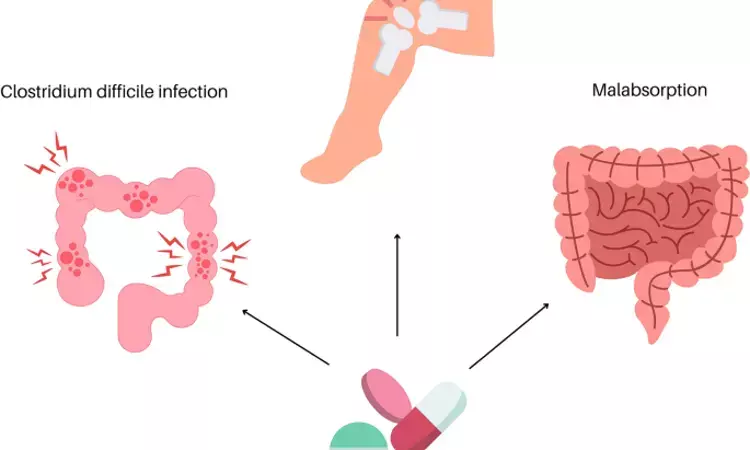- Home
- Medical news & Guidelines
- Anesthesiology
- Cardiology and CTVS
- Critical Care
- Dentistry
- Dermatology
- Diabetes and Endocrinology
- ENT
- Gastroenterology
- Medicine
- Nephrology
- Neurology
- Obstretics-Gynaecology
- Oncology
- Ophthalmology
- Orthopaedics
- Pediatrics-Neonatology
- Psychiatry
- Pulmonology
- Radiology
- Surgery
- Urology
- Laboratory Medicine
- Diet
- Nursing
- Paramedical
- Physiotherapy
- Health news
- Fact Check
- Bone Health Fact Check
- Brain Health Fact Check
- Cancer Related Fact Check
- Child Care Fact Check
- Dental and oral health fact check
- Diabetes and metabolic health fact check
- Diet and Nutrition Fact Check
- Eye and ENT Care Fact Check
- Fitness fact check
- Gut health fact check
- Heart health fact check
- Kidney health fact check
- Medical education fact check
- Men's health fact check
- Respiratory fact check
- Skin and hair care fact check
- Vaccine and Immunization fact check
- Women's health fact check
- AYUSH
- State News
- Andaman and Nicobar Islands
- Andhra Pradesh
- Arunachal Pradesh
- Assam
- Bihar
- Chandigarh
- Chattisgarh
- Dadra and Nagar Haveli
- Daman and Diu
- Delhi
- Goa
- Gujarat
- Haryana
- Himachal Pradesh
- Jammu & Kashmir
- Jharkhand
- Karnataka
- Kerala
- Ladakh
- Lakshadweep
- Madhya Pradesh
- Maharashtra
- Manipur
- Meghalaya
- Mizoram
- Nagaland
- Odisha
- Puducherry
- Punjab
- Rajasthan
- Sikkim
- Tamil Nadu
- Telangana
- Tripura
- Uttar Pradesh
- Uttrakhand
- West Bengal
- Medical Education
- Industry
Proton pump inhibitors use tied to accelerated renal risk among CKD patients, suggests study

Proton pump inhibitors are tied to accelerated renal risk among CKD patients, suggests a study published in the BMC Nephrology.
Although Proton pump inhibitors (PPIs) were widely prescribed for gastrointestinal (GI) diseases, there were numerous studies about PPIs and adverse renal outcomes. Most evidence was to evaluate the risk of PPIs in patients with normal renal function and the absence of moderate to advanced chronic kidney disease (CKD).
This study focuses on the accelerated progression of renal function following proton pump inhibitors (PPIs) use, and the increased risks of acute kidney injury (AKI) among moderate to advanced CKD (pre-ESRD) patients.
A retrospective cohort study was conducted by including adult patients with chronic kidney disease (CKD) stages 3b to 5 who initiated PPI or H2 blocker (H2B) therapy between 2011 and 2018. The risk of renal events was assessed using the Cox proportional hazard model to estimate the adjusted hazard ratio (HR) and 95% confidence interval (CI). Sensitivity analyses were performed, including propensity score matching, as-treated analysis, and subgroup analysis.
Results: The cohort comprised 83,432 pre-ESRD patients, with 5,138 treated with H2B and 1,051 with PPIs. The progression to ESRD was significantly more likely in patients using PPIs compared to those using H2B (adjusted HR, 1.495; 95% CI: 1.198–1.867). Specifically, omeprazole (adjusted HR, 1.784; 95% CI: 1.079–2.951) and esomeprazole (adjusted HR, 1.847; 95% CI: 1.332–2.561) were associated with a notably higher risk of ESRD and AKI. The study highlights the significance of the accelerated renal risk, especially for moderate to advanced CKD patients, when prescribing PPIs and implicates the clinicians prescribed PPIs and H2B in pre-ESRD patients.
Reference:
Huang, CH., Tsai, CJ., Su, CC. et al. Accelerated risk of renal disease progression in pre-ESRD patients with proton pump inhibitors use: a nationwide population-based study. BMC Nephrol 25, 469 (2024). https://doi.org/10.1186/s12882-024-03867-6
Dr. Shravani Dali has completed her BDS from Pravara institute of medical sciences, loni. Following which she extensively worked in the healthcare sector for 2+ years. She has been actively involved in writing blogs in field of health and wellness. Currently she is pursuing her Masters of public health-health administration from Tata institute of social sciences. She can be contacted at editorial@medicaldialogues.in.
Dr Kamal Kant Kohli-MBBS, DTCD- a chest specialist with more than 30 years of practice and a flair for writing clinical articles, Dr Kamal Kant Kohli joined Medical Dialogues as a Chief Editor of Medical News. Besides writing articles, as an editor, he proofreads and verifies all the medical content published on Medical Dialogues including those coming from journals, studies,medical conferences,guidelines etc. Email: drkohli@medicaldialogues.in. Contact no. 011-43720751


